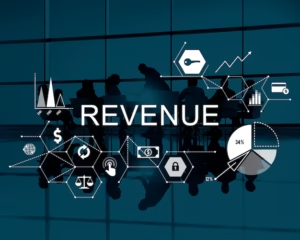
Learning To Earning
The transition from student to successful professional is a monumental one, filled with challenges, opportunities, and moments of self-discovery. The road from learning to earning is not always linear, and it requires more than just academic knowledge. It demands practical experience, skill-building, resilience, and the ability to adapt to an ever-changing professional world. In this article, we’ll explore the journey from student to successful professional, offering insights on how to navigate the various stages, from acquiring a solid education to finding meaningful work, and ultimately, achieving long-term career success.
Key Takeaways
- Education is the Foundation: Your academic background provides the knowledge necessary for entering your chosen field, but it’s your practical experience that will set you apart.
- Experience Matters: Internships, freelancing, and volunteering help you build a portfolio and gain real-world skills, making you more competitive when entering the job market.
- Networking is Essential: Building professional relationships early on can open doors to opportunities and mentorship that will help you grow in your career.
- Persistence Pays Off: The job search can be challenging, but persistence and preparation will eventually lead to landing the right job.
- Never Stop Learning: The journey from student to successful professional is ongoing. Continuing to develop new skills, earn certifications, and seek feedback will ensure long-term success and fulfillment.
The Foundation: Education and Skill Development
The first step in the journey from learning to earning begins with education. Formal education provides the foundational knowledge necessary to enter most professional fields. It helps students develop critical thinking, problem-solving, and communication skills, which are essential for any career. However, in today’s competitive job market, education alone is often not enough. A student’s ability to apply their knowledge and adapt to new environments is equally important.
Also Read : How to Increase Your Business Revenue With Proven Strategies?
The Role of Formal Education
For many, education begins in the classroom. Whether pursuing a high school diploma, a bachelor’s degree, or advanced certifications, students gain the technical knowledge required for their chosen profession. For instance, a computer science major will learn programming languages, software development, and algorithms, while a business student will study economics, marketing, and management principles. However, while academic knowledge is critical, employers also value practical experience, so it’s essential for students to complement their education with real-world applications.
Also Read : Bigg Boss 18: Best Strategies To Win The Game And Stay In The Spotlight
The Importance of Skill Development
In addition to formal education, students must focus on developing skills that will make them competitive in the job market. These include both hard and soft skills. Hard skills are job-specific abilities that can be learned through training or education, such as coding, data analysis, graphic design, or engineering. Soft skills, on the other hand, are interpersonal traits that affect how an individual interacts with others. These include communication, problem-solving, leadership, teamwork, and emotional intelligence.
Also Read : Why Indian Idol Continues To Captivate Audiences After All These Years
To truly stand out, students should prioritize the development of both sets of skills. This may involve internships, freelance work, volunteer opportunities, or engaging in extracurricular activities that allow them to practice and hone these abilities.
Also Read : Loki Season 2: Exploring The Darker Corners Of The Multiverse
Gaining Experience: Internships, Freelancing, and Volunteering
Experience is often one of the most important factors in landing a job and achieving professional success. As a student, it can be difficult to gain relevant work experience in your chosen field, but it is crucial to start building your resume early.
Also Read : The Best Comedy Films To Watch For A Good Laugh
Internships: Real-World Experience
Internships are an excellent way for students to bridge the gap between education and employment. An internship allows students to apply their academic knowledge in a real-world setting, develop industry-specific skills, and network with professionals. Internships are not only an opportunity to gain experience but also a way to explore different career paths and industries. Many companies hire interns as full-time employees after graduation, which makes internships a valuable stepping stone to permanent positions.
Freelancing: Building a Portfolio
For students pursuing careers in fields such as writing, graphic design, web development, or digital marketing, freelancing is an excellent way to gain hands-on experience while still in school. Freelancers can work on projects for clients, build a portfolio of work, and gain practical experience in managing their own business, negotiating with clients, and meeting deadlines. This entrepreneurial approach can set students apart when applying for full-time jobs later.
Volunteering: Gaining Transferable Skills
Volunteering is another way to gain valuable experience while contributing to a cause you care about. Non-profit organizations often offer roles that allow students to develop skills such as event planning, fundraising, social media management, and community outreach. While volunteering may not be paid, it provides an opportunity to gain transferable skills that can be applied in a professional setting. It also demonstrates initiative and a strong work ethic to potential employers.
Networking: Building Relationships and Connections
One of the most important aspects of transitioning from student to professional is building a network. Networking is not only about meeting people who can help you land a job—it’s about creating meaningful, mutually beneficial relationships. Networking helps you stay informed about industry trends, discover job opportunities, and get advice from experienced professionals.
Attend Career Fairs and Industry Events
Career fairs, conferences, and industry events are excellent places to meet professionals in your field and learn about job openings. Many universities host career fairs where companies come to recruit students for internships and entry-level positions. Attending these events provides students with the opportunity to speak directly with hiring managers, ask questions about the company culture, and make a positive impression in person.
Use LinkedIn Effectively

LinkedIn is one of the most powerful tools for professional networking. Students should create a polished LinkedIn profile and actively engage with others in their field. This includes connecting with professors, peers, alumni, and professionals in the industry. LinkedIn can also be used to showcase achievements, share industry-relevant articles, and participate in relevant groups and discussions. A strong LinkedIn presence can help students stand out to recruiters and hiring managers.
Seek Mentorship
Mentorship is invaluable when navigating the transition from student to professional. A mentor is someone who has experience in your chosen field and can offer guidance, advice, and support as you embark on your career journey. A mentor can help you set realistic career goals, advise you on challenges you may face, and connect you with other professionals in your network. Many universities offer mentorship programs, and students should also seek out mentorship opportunities through professional organizations or LinkedIn.
Transitioning to the Workforce: Landing Your First Job
After completing your education and gaining relevant experience, the next step is landing your first full-time job. The job search process can be overwhelming, but a well-thought-out approach can help students stand out and increase their chances of securing their desired position.
Tailor Your Resume and Cover Letter
A tailored resume and cover letter are essential for making a positive impression on employers. Your resume should highlight relevant skills, experiences, and accomplishments that align with the job description. Focus on achievements rather than just listing job duties. The cover letter should demonstrate your enthusiasm for the position, your knowledge of the company, and how your skills can contribute to their goals.
Prepare for Interviews
Once you land an interview, preparation is key. Research the company thoroughly, familiarize yourself with the job description, and practice common interview questions. Show up with confidence, demonstrate your enthusiasm for the role, and be prepared to discuss how your skills and experiences make you the right candidate for the job. Remember to also ask thoughtful questions about the company culture, team dynamics, and the next steps in the hiring process.
Consider Entry-Level Roles
It’s important to be open to entry-level positions when starting your career. While these roles may not be your ultimate goal, they provide valuable experience, allow you to learn about the industry, and provide opportunities for career advancement. Many professionals begin their careers in entry-level jobs and work their way up the ladder by demonstrating their capabilities, building their network, and continuously learning.
Continued Learning and Professional Development
The journey from student to successful professional doesn’t end once you land your first job. Career growth requires continued learning and professional development. In today’s fast-paced world, industries are constantly evolving, and the most successful professionals are those who keep improving their skills and expanding their knowledge.
Pursue Advanced Certifications and Degrees
Once in the workforce, professionals may want to pursue advanced degrees or certifications to further enhance their skills and qualifications. For example, a marketer may pursue a digital marketing certification, or an engineer might seek advanced technical training. These credentials demonstrate a commitment to learning and can make you more competitive in the job market.
Seek Feedback and Reflect
Seeking feedback from supervisors, colleagues, and mentors is an essential part of professional growth. Constructive feedback helps identify areas for improvement and provides guidance on how to develop. Professionals should also take time to reflect on their career progress, reassess their goals, and make adjustments as necessary.
Stay Curious and Adaptable
The most successful professionals are those who remain curious and adaptable in the face of new challenges. Whether it’s learning new software, adopting industry trends, or taking on new responsibilities, a willingness to learn and grow is crucial for long-term career success. The journey from student to professional is just the beginning, and lifelong learning is key to staying relevant and thriving in an ever-changing job market.
Also Read : Easy Ways for Teens to Earn Online Money Under 18
Conclusion
The journey from student to successful professional is complex, but with the right mindset, dedication, and strategic planning, it’s possible to transition smoothly into the workforce and thrive. By focusing on gaining education, building skills, seeking experience, networking, and continually learning, students can prepare themselves for a successful and fulfilling career. While the path may not always be straightforward, each step provides opportunities for growth, learning, and achievement. Ultimately, the journey from learning to earning is one of continuous evolution, and the more effort you put into your development, the more rewarding your career will be.



